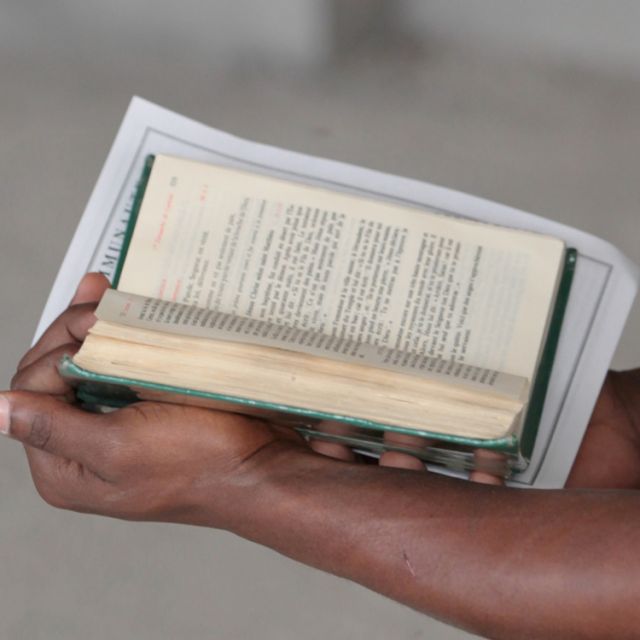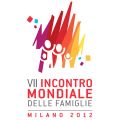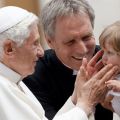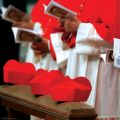Poetry can open us to Church’s gifts
Jonathan recalled his conflict with a co-worker. In mid-sentence, he paused for a full minute, then said, “I’m not an angry person, am I? I don’t want to be an angry person.”
Why is it so difficult, sometimes, to acknowledge we’re angry? Even those of us who are pretty good at showing anger can find it hard to own. We might fear its power, or have experience of the ways anger can unleash terrible harm. Yet some Church Fathers thought anger existed in Paradise: could we imagine anger an unfallen, pure gift of God? A force that works within us, creatively rather than destructively?
Jesus’ blood bears witness to God’s love
Body and Blood of Christ (Year B) June 10 (Exodus 24:3-8; Psalm 116; Hebrews 9:11-15; Mark 14:12-16, 22-26)
From the beginning of human history until our own day, blood has both repelled and fascinated humans. It has played a prominent role in religion, politics and, unfortunately, entertainment.
The ancient Hebrews believed that blood was the bearer of life itself, and as such must always be treated with reverence and respect. People were forbidden to ingest the blood of animals. Human blood that had been spilled always required recompense and justice. Blood was powerful — it was offered to the gods or to God in sacrifice. It could both purify and ward off evil. The blood of Passover over Israelite doors turned aside the angel of death.
Sun, storms, wilderness, deserts and spirituality
A number of years ago, accompanied by an excellent Jesuit director, I did a 30-day retreat using the Spiritual Exercises of St. Ignatius. In the third week of that retreat there’s a meditation on Jesus’ agony in the garden. I did the meditation to the best of my abilities and met with my director to discuss the result. He wasn’t satisfied and asked me to repeat the exercise. I did, reported back to him, and found him again dissatisfied. I was at a loss to grasp exactly what he wanted me to achieve through that meditation, though obviously I was missing something. He kept trying to explain to me that Ignatius had a concept wherein one was supposed to take the material of a meditation and “apply it to the senses” and I was somehow not getting that part.
Pope likens world to latter-day Babel, announces new doctors of church
VATICAN CITY - The modern world is a latter-day Babel, where arrogance inspired by technological progress leads people to play God and sets them against each other, a predicament from which people can escape only through divinely inspired humility and love, said Pope Benedict XVI.
The pope made his remarks during his homily May 27, Pentecost Sunday, during Mass in St. Peter's Basilica.
Catholics can gain indulgence by praying for families, going to Milan
VATICAN CITY - Catholics who dedicate themselves to special prayers and efforts to promote the holiness of Christian families can receive special indulgences during the World Meeting of Families May 30-June 2 in Milan.
Pope Benedict XVI authorized the indulgences for those who, "truly repentant and motivated by charity, dedicate themselves to the sanctification of the family," said a decree published May 25 by Cardinal Manuel Monteiro de Castro, head of the Apostolic Penitentiary, which deals with indulgences.
Vatican publishes rules for verifying Marian apparitions
VATICAN CITY - To help bishops determine the credibility of alleged Marian apparitions, the Vatican has translated and published procedural rules from 1978 that had previously been available only in Latin.
The "Norms regarding the manner of proceedings in the discernment of presumed apparitions or revelations" were approved by Pope Paul VI in 1978 and distributed to the world's bishops, but never officially published or translated into modern languages.
Dublin's city center 'Camino' takes pilgrims to seven historic churches
DUBLIN - A new city center "Camino," or pilgrim walk, has been launched in Dublin as part of the celebrations surrounding the International Eucharistic Congress set for June 10-17.
The walk, involving prayerful visits to seven of Dublin's most historic Catholic and Anglican churches, is partly inspired by the famous pilgrimage to Santiago de Compostela in northern Spain and partly inspired by the traditional Dublin devotion of visiting seven churches on Holy Thursday.
Each human being is a miracle loved by God the father, Pope says
VATICAN CITY - Addressing God as "Father" is an acknowledgement that God is the one who created, supports and guides humanity, Pope Benedict XVI said.
"Maybe people today do not understand the beauty, greatness and deep consolation" that comes from recognizing God as father, "because the paternal figure is not sufficiently present today," the Pope said May 23 during his weekly general audience.
God is — and always will be — a faithful, merciful redeemer
Trinity Sunday (Year B) June 3 (Deuteronomy 4:32-34, 39-40; Psalm 33; Romans 8:14-17; Matthew 28:16-20)
We need to be constantly reminded of the ways in which we have been blessed. On the human level, we sometimes have short or selective memories regarding the kindnesses of others. It is helpful to periodically make an effort to remember the small but important acts of decency and kindness that have come our way. It is a good antidote to the negativity that threatens to hold us captive.
Winning hearts for the New Evangelization
Recently a new expression has made its way into our theological and ecclesial vocabulary. There’s a lot of talk today about the New Evangelization. Indeed the Pope has called for a Synod to meet this year for a month in Rome to try to articulate a vision and strategy for such an endeavour.
What is meant by New Evangelization? In simple terms: Millions of people, particularly in the Western world, are Christian in name, come from Christian backgrounds, are familiar with Christianity, believe that they know and understand Christianity, but no longer practise that faith in a meaningful way. They’ve heard of Christ and the Gospel, even though they may be overrating themselves in their belief that they know and understand what these mean. No matter. Whatever their shortcomings in understanding a faith they no longer practise, they believe that they’ve already been evangelized and that their non-practise is an examined decision. Their attitude toward Christianity, in essence, is: I know what it is. I’ve tried it. And it’s not for me!
Pope tells Cardinals, 'We are on the Lord's team, the winning team'
VATICAN CITY - "We are on the Lord's team, the winning team," Pope Benedict XVI told members of the College of Cardinals at the end of a luncheon he hosted to thank them for their friendship and support.
At the end of the meal in the frescoed Sala Ducale of the Apostolic Palace May 21, the Pope told the Cardinals that St. Augustine once described history as "a battle between two loves," love for oneself and love for God.








